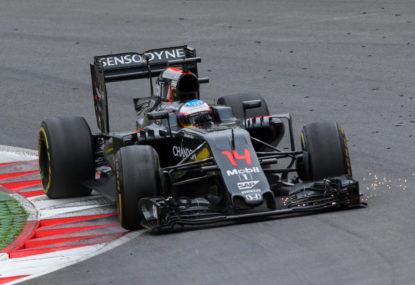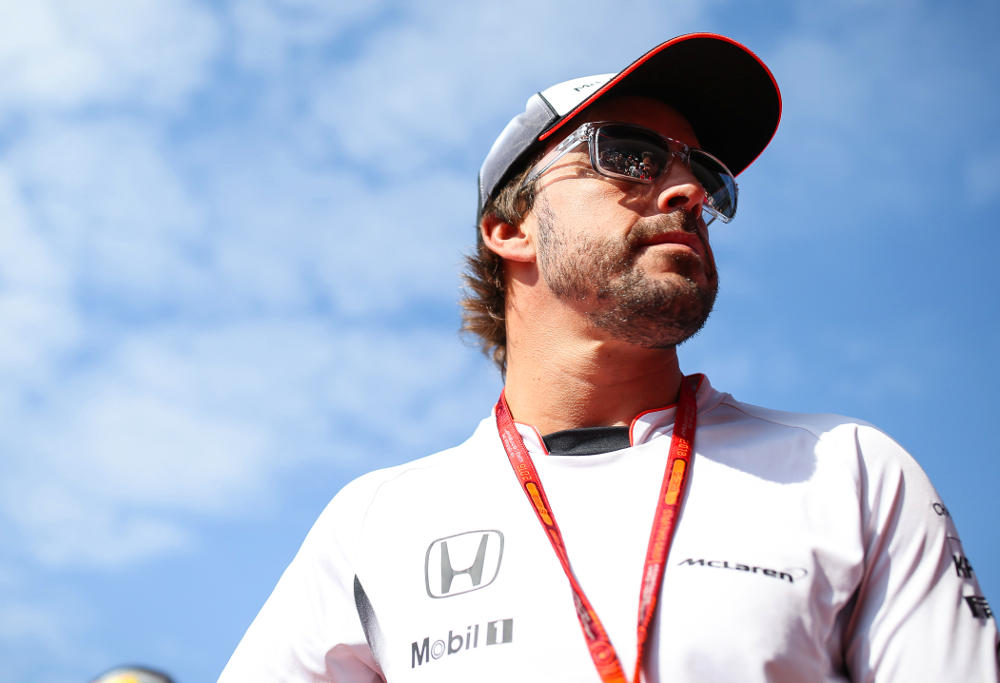'Welcome back': Reliving the last Chinese Grand Prix ahead of its much-anticipated return five years later
Five-years is a long time in motorsport, let alone the general state of the world – especially given the impact of the Covid-19 pandemic…

Formula One’s system of penalising drivers with grid penalties for changing components on their power-units was once again in the spotlight at the Italian Grand Prix – with a record of seven drivers having been penalised and viewers needing a Masters of Mathematics to determine the grid.
Since the introduction of the hybrid power-unit in Formula One back in 2014 and the limitation on the number of units that can be used per driver, the use of grid penalties has done little to restrict teams from undertaking changes.
Another reason for the system being maligned is that Monza is one of the easiest tracks on the calendar to overtake and teams had strategically taken the penalties to introduce new power-units into their allocated pools for the remainder of the season.
The whole idea behind the FIA’s implementation of this measure, was with cost cutting in mind, thinking that this would stop the more wealthier teams from spending more to maintain the optimal package at each race.
While cutting costs in Formula One is a fair concept, it in the case of power-unit penalties is extremely naïve, with it doing little to push the teams struggling with reliability – which is the reason why they’ve had to make multiple changes through a season and of course, detracting from the racing itself with star drivers being forced to start from the back of the field.
Mercedes-Benz, who have been the benchmark for reliability with their power-units have been the supplier who has suffered the least since 2014. With that, their works team in Mercedes AMG are one of the few teams who can complete a season, taking minimum penalties as possible.
Contrast that to Renault, or the diabolical Honda, who for the sake of reliability are forced to start from the back of the grid – with the latter’s predicament a lot more disastrous.

(Image: GEPA Pictures/Red Bull Content Pool).
Having to consistently view two-time world champion Fernando Alonso, cop monumental penalty counts because his engine supplier cannot produce a reliable product is beyond unacceptable.
Formula One’s Director of Motorsport in Ross Brawn agrees, stating in Monza that “I hate the fact that we’re having to affect the racing because of the technical issues.”
“I know you can say if a car breaks down in a race that’s a technical issue and you’ve affected the race, but I think the fans understand that.
“For a fan to stomach that his hero is on the back of the grid because he had to change the engine, that’s not great sport.
“We’ve got to find a solution to that, either through a different form of penalty or to remove the penalty altogether and just live with the problem that it was trying to fix.”
“We are working with the FIA now to try and see if there is a better solution in the future, and certainly hope with a new engine and new rules we’ll definitely have a better solution,”
“Maybe we’ll be able to implement a better solution before then, because it’s a massively unpopular aspect of Formula One at the moment.”
A more appropriate solution as earmarked by many, is that teams should be docked constructor’s points. This would ensure that a driver’s race is unaffected, unless the driver is Alonso, whereby his Honda power-unit is doomed to fail forever.
Stripping points or even handing out fines for excessive changes, at least is another method of dealing punishment to the teams for changes and it maybe one they feel at the end of the season in terms of their finishing position in the standings.
This debate does raise another issue though, surrounding the reliability of the power-unit. It would have been thought that now four years into their existence in Formula One, that reliability would be near perfect – with it being used a demonstration of what the manufacturers are capable of with their road cars.
As fascinating as hybrid technology is, the overcomplication of grid penalties and mass-component changes is doing little to attract fair-weather viewers to the sport.
Though with Brawn and co now on the case, there is time to address this whole area and ensure that the hybrid side of Formula One continues to develop – without the detractors of complicated penalties and unfair advantages to teams with bigger budgets.